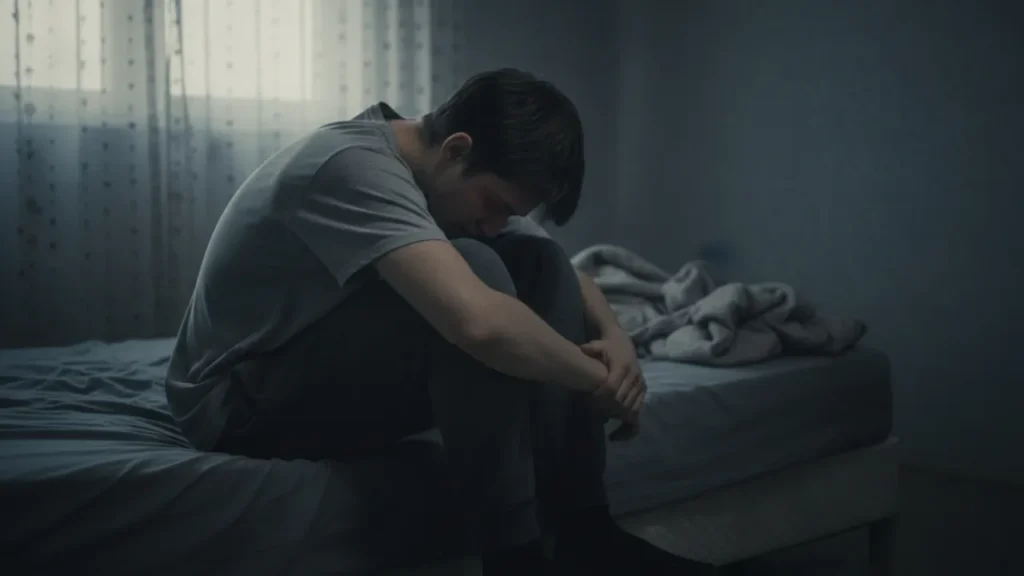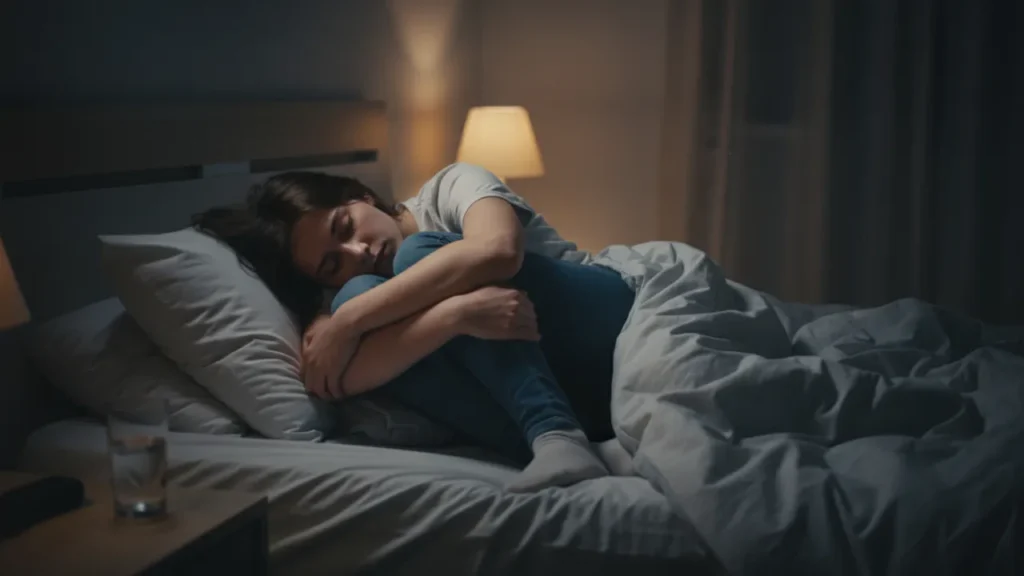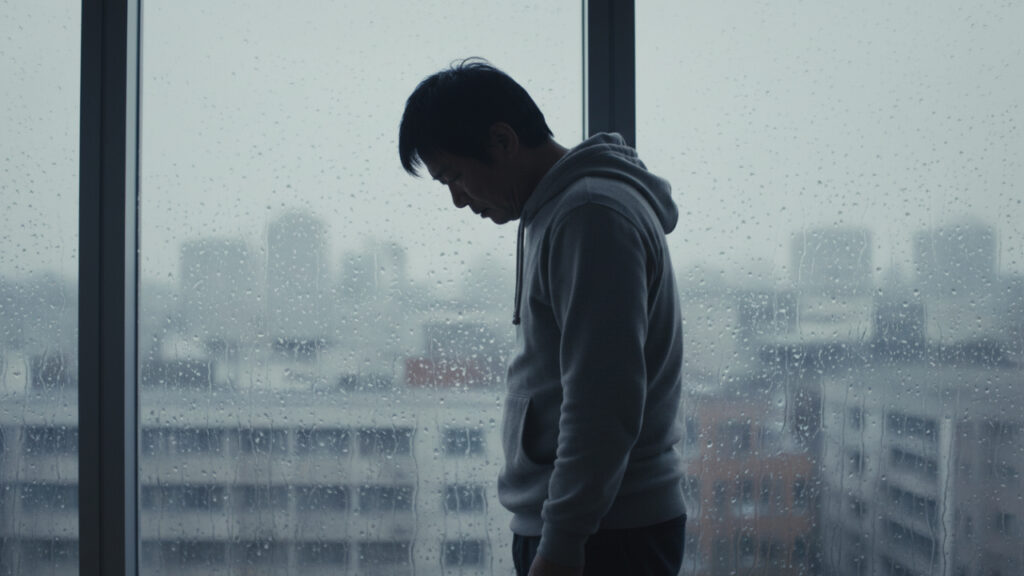Stages Of Depression: Signs, Progression, And What To Do
Depression can move in stages that affect thoughts, behavior, and health. Knowing these stages helps you spot risk, plan treatment, and protect recovery.

How “Stages” Help You Understand Major Depressive Disorder
Depression often follows a pattern across time. People move from early warning signs to a full episode, then into remission, relapse, or recurrence. This simple map gives you clear next steps at each point.
Why “Stages” Is A Useful Framework For Major Depressive Disorder
Clinicians describe episodes using the Diagnostic and Statistical Manual of Mental Disorders and guidance from the American Psychiatric Association. They track severity, duration, and impairment to guide care. The five stages of grief differ from depression and do not define medical treatment.
Early Signs And The Prodromal Stage
Early signs can appear weeks before a full episode. You may notice low mood, anxiety, irritability, or sleep and appetite shifts. Stress, divorce, pregnancy, childbirth, chronic disease, and periods can raise risk.
Red Flags That Suggest The Onset Of A Depressive Episode
Watch for fatigue, less pleasure, and slower thinking. Headache, migraine, and pain can grow while energy drops. Diabetes, multiple sclerosis, and thyroid issues can mimic depression and need medical screening.
Mild Depression And Dysthymia (Persistent Symptoms)
Mild depression and dysthymia show as low mood on most days for long periods. You still meet duties, but pleasure and motivation fade. People describe anhedonia, guilt, and nagging worry that will not lift.
Behavior And Mood Patterns In Mild Or Persistent Depression
Daily routines feel heavy and slow. Sleep runs short or long, and appetite changes lead to weight loss or weight gain. Social time shrinks and work focus slips.
Moderate Depression: Daily Life Starts To Narrow
Symptoms increase in number and intensity. You see clear impairment at home, school, or work and more health complaints. Suicidal ideation can emerge and must be taken seriously.
Medical And Psychiatric Conditions That Can Mimic Or Worsen Depression
Bipolar disorder, cyclothymia, and borderline personality disorder can look like unipolar depression at first. Disruptive mood dysregulation disorder appears in youth and needs careful assessment. A health professional should rule out medications, stimulant misuse, and medical causes before finalizing a plan.
Severe Depression And Psychotic Features
Severe depression brings profound sadness, anhedonia, insomnia, poor appetite, and marked fatigue. Thinking slows and guilt becomes intense. Some people develop psychosis with mood-congruent delusions or hallucinations.

When To Consider Higher Levels Of Care Or Advanced Treatments
Severe depression and psychotic depression may need psychiatry, antidepressant combinations, or electroconvulsive therapy. Hospital care can protect safety if suicide risk is high. Rapid steps save lives and improve long-term outcomes.
Bipolar Depression, Mania Risk, And Mixed Features
Bipolar disorder includes depression and mania or hypomania. Antidepressants can sometimes provoke mania if bipolar risk is present. A mental health professional screens family history, past activation, and mixed symptoms before treatment.
Signs That Point Away From Unipolar Depression
Periods of decreased need for sleep, racing thoughts, and risky behavior suggest mania. Rapid mood shifts, irritability, and high energy with goal-directed behavior are warning signs. Tell your clinician if any of these occurred in the past.
Remission, Relapse, And Recurrence
After treatment starts, many people reach remission within weeks to months. Relapse means symptoms return during recovery; recurrence means a new episode after wellness. Maintenance plans help you continue gains and cut the risk of new episodes.
How To Continue Care And Lower Relapse Risk
Follow visits, medications, and therapy even when you feel better. Add sleep routines, activity goals, and social support to protect mood. Plan early calls with your care team at the first hint of return.
Postpartum, Premenstrual, And Seasonal Patterns
Postpartum depression can occur during pregnancy or after childbirth. Premenstrual syndrome and related mood shifts can worsen depression during periods. Seasonal affective disorder appears with winter light loss and affects sleep and appetite.
Light, Sleep, And Daily Routine Matter For Hormone-Linked Mood
Consistent sleep supports the brain and lowers irritability. Morning light, movement, and planned meals stabilize energy. Meditation and mindfulness can reduce stress responses.
Depression And Medical Or Neurologic Disease
Depression is common in dementia, alzheimer disease, diabetes, multiple sclerosis, chronic pain, and migraine. It also appears in people with addiction and other personality disorder diagnoses. A medical workup ensures nothing is missed.
The Brain, Serotonin, And The Vagus Nerve
Antidepressants adjust serotonin and other transmitters in the brain. Vagus nerve activity connects mood with sleep, appetite, and inflammation. Mind-body practices that calm breathing can help regulate this system.
Evidence-Based Treatment Stages At Revival Mental Health
At Revival Mental Health in Orange County, we match care to your current stage. We offer psychiatry, therapy, medication management, and coordinated support that adapts as symptoms change.
Therapy Options That Build Skills And Support
We use cognitive and behavioral therapy to target thoughts and behavior. Sessions cover coping skills, problem solving, and relapse prevention. We also address anxiety, stress, and guilt that keep depression stuck.
Medication And Medical Treatments: What To Expect
Your psychiatry visit reviews diagnosis, risks, and goals before any antidepressant. Some cases respond to augmentation, while others need electroconvulsive therapy for rapid relief. We coordinate with your medical team if you have diabetes, pregnancy, or other conditions.
Daily Habits That Help You Cope And Heal
Plan regular sleep, balanced diet, and steady activity even on low-energy days. Short, guided meditation and mindfulness practices reduce stress signals. Track sleep, appetite, and energy so you and your clinician can adjust care.
Special Situations: Teens, Older Adults, And Co-Occurring Conditions
Teens can show irritability, school decline, or behavior changes rather than sadness. Older adults may present with fatigue, headache, cognitive changes, or pain. We screen for migraine, medical disease, and memory disorders that complicate mood.
When Depression Overlaps With Other Diagnoses
Dysthymia, major depressive disorder, and psychotic depression require specific plans. We also assess for bipolar disorder, cyclothymia, and borderline personality disorder. Clear information helps you engage in treatment with confidence.
How Revival Mental Health Supports Orange County
We help people across Irvine, Newport Beach, Costa Mesa, and nearby cities. We coordinate care with your health professional and provide local referrals when needed. Families get education and support so progress continues at home.

Who We Help In Orange County And How We Structure Care
Adults, college students, and new parents find stage-specific plans here. We support people facing pregnancy, postpartum depression, and grief after divorce. We also see clients with chronic pain, multiple sclerosis, migraine, and diabetes.
When To Seek Help And What To Do In A Crisis
Seek care if symptoms last two weeks, worsen fast, or disrupt function. Get urgent help for suicidal ideation, intent, or unsafe behavior. Call or text the Suicide and Crisis Lifeline at 988 for immediate support.
Your Next Step With Revival Mental Health
Call (949) 373-3138 to schedule a same-week evaluation. We review symptoms, risk, and goals, and we start a clear plan. You leave with information and first steps you can use today.
Common Symptoms Across Stages
Sadness, anhedonia, fatigue, and sleep problems are core signs. Appetite shifts can cause weight loss or weight gain. Trouble focusing, guilt, and slowed movement also appear.
Physical And Cognitive Changes You Should Track
People report headache, migraine, and body pain during episodes. The brain struggles with memory, speed, and problem solving. Keep a simple log of mood, sleep, appetite, energy, and pleasure.
How Diagnosis Works And Why It Matters
A mental health professional uses a clinical interview, rating scales, and collateral input. They follow the Diagnostic and Statistical Manual of Mental Disorders to make a diagnosis. This process rules out psychosis, mania, medical disease, or medication effects.
Treatment Planning That Respects Your Goals
Plans blend therapy, medication, and skills practice. Psychiatry reviews antidepressant options and risks, including activation in bipolar disorder. We adjust care to reduce relapse risk and support stable functioning.
Lifestyle, Medications, And Adjunctive Options
Diet quality and steady meals support energy. Exercise improves sleep and mood in depression. Some cases consider stimulant augmentation under close supervision.
Interventions For Severe Or Recurrent Episodes
Electroconvulsive therapy can treat severe depression and psychotic depression. Interventions that engage the vagus nerve and structured psychotherapy can help hard-to-treat cases. Ongoing follow-up helps gains continue and prevents relapse.
FAQs
- What are the main differences between stages of depression and the five stages of grief? Grief stages describe a reaction to loss, not a medical mood disorder. Depression stages reflect symptom severity and time course in major depressive disorder. Treatment decisions follow medical criteria rather than grief models.
- How do clinicians separate major depressive disorder from bipolar depression during an intake? A clinician screens for past mania or hypomania, family history, and mixed features. They ask about decreased need for sleep, racing thoughts, and risky behavior. This information prevents the wrong medication plan and reduces risk.
- When is electroconvulsive therapy considered, and how safe is it today? ECT is considered for severe depression, psychotic depression, high suicide risk, or when medications fail. Modern anesthesia and monitoring improve safety and comfort. People often see rapid relief when other steps did not work.
- Can medical problems or medications make depression worse even if I am in therapy? Yes, conditions like diabetes, multiple sclerosis, migraine, and dementia can worsen symptoms. Some drugs and stimulant misuse can also affect mood, sleep, and appetite. Tell your health professional about all medicines and changes in your health.





